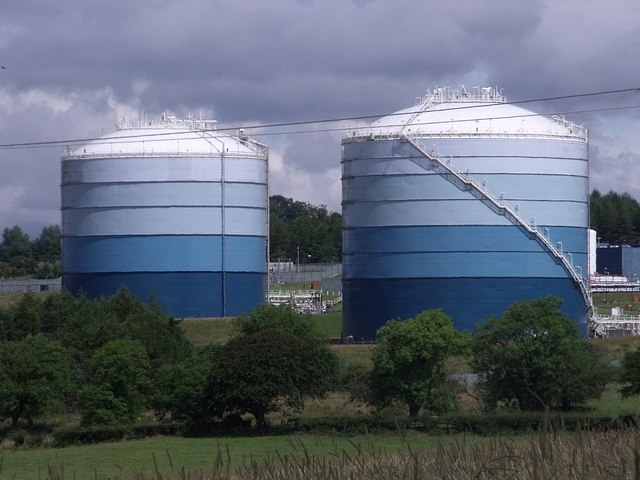Depressed stock prices are always attractive to investors willing to take risks.
And many Canadian energy firms’ stocks are in the doldrums, fueling talk of takeover bids, which leave many in Ottawa wondering if Chinese venture capitalists, flush with cash, will add to their Great White North portfolios.
Analysts are now speculating that three Calgary energy firms – Encana Corp., Talisman Energy Inc. and Nexen Inc. – are most likely to be in investors’ sights as ripe for takeover, due to a perfect storm of operational setbacks, inept management decisions and plummeting natural gas prices, all of which have depressed their stocks despite oil prices soaring above $100 a barrel.
Chinese-Canadian trade is booming, but as with the U.S., China enjoys a significant trade surplus. In 2010 Canada imported $44.4 billion in Chinese goods but Canadian exports to China were a relatively modest $12.9 billion.
What a difference a mere half decade makes – during the period 2006-2009, there were no major Chinese investments in Canada, while between 2001 and 2010 overall trade between the countries tripled even as Canada actually declined in terms of its overall percentage of China’s foreign trade during the decade.
Accordingly, energy could be the major Canadian export to redress the balance.
Since 2009, China’s state-owned oil companies have invested $16 billion in Alberta’s oil sands along with pipelines and shale oil and gas assets, out of a total of $97 billion sunk into oil sands overall.
Furthermore, China has recently begun taking outright control of Canadian energy companies, beginning with the acquisition by state-owned giant China Petroleum and Chemical Corporation Ltd. (Sinopec) of mid-sized Canadian oil and gas producer Daylight Energy last autumn.
Underscoring China’s rising importance in Canada’s corridors of power, next month Conservative Canadian Prime Minister Stephen Harper will make his second state visit since 2009 to China, with oil sales uppermost in his mind. One of Harper’s top priorities is to build a skein of pipelines to Canada’s western coast for energy shipments to Asia.
This dovetails with Beijing’s interests, which wants Alberta oil if it can get it and wants Harper to continue to push for a pipeline to the Pacific, a situation made much more likely by the 18 January decision by the Obama administration to not press forward with the Keystone XL pipeline.
In a statement released by the White House President Obama said, “This announcement is not a judgment on the merits of the pipeline, but the arbitrary nature of a deadline that prevented the State Department from gathering the information necessary to approve the project and protect the American people.”
In a news release last week to announce his trip to China, Harper gushed about improving Canada’s relationship with China “by focusing on deepening economic ties.”
Harper’s China initiative has the solid backing of Canada’s business community. On 18 January the Canadian Chamber of Commerce released a report, “Advancing Our Economic Ties With China: Three priorities for Canadian business,” arguing that Canadian-Chinese ties are quickly becoming one of Canada’s most important external relationships. Canadian Chamber of Commerce President and CEO Perrin Beatty opined, “There is a clear need for more and better Canada-China trade. Of course, there are barriers in both countries that must be removed in order to open access to the tremendous opportunities ahead and build a partnership of shared growth and prosperity, but we cannot let these stop us from realizing the full benefits of the relationship.”
But pipelines to Canada’s west coast are not yet a done deal, and Harper and Natural Resources Minister Joe Oliver have pushed back hard against Canadian environmentalists fighting the Northern Gateway pipeline from Alberta to the British Colombia coast.
And Encana Corp., Talisman Energy Inc. and Nexen Inc.?
According to one analyst, given their purchase prices, they are probably safe for the moment from Chinese capitalists.
University of Alberta’s China Institute fellow Wenran Jiang observed that while Chinese state-owned oil companies are increasingly eyeing Canadian energy firms, they are unlikely to bid on Encana Corp., Talisman Energy Inc. and Nexen Inc., whose acquisition prices are estimated by analysts to be in the $11-22 billion range, due to both financial and political concerns. Wenran said, “My sense with talking to senior executives on both sides is the Chinese are comfortable in moving forward in the range of $2 to $3 or $4 billion deals, but I think it would quite a different step to move up to $15 billion plus.”
So, gold-plated Canadian energy assets seem safe for Canadian ownership at present, but much obviously depends on Harper’s upcoming dog and pony show in Beijing. If the Great White North isn’t turning red, it’s certainly acquiring a pinkish hue.
By John C.K. Daly of OilPrice.com
Are You Still Paying With a Debit Card?
The average American spends $17,274 on debit cards a year, and it’s a HUGE mistake. First, debit cards don’t have the same fraud protections as credit cards. Once your money is gone, it’s gone. But more importantly you can actually get something back from this spending every time you swipe.
Issuers are handing out wild bonuses right now. With some you can earn up to 5% back on every purchase. That’s like getting a 5% discount on everything you buy!
Our top pick is kind of hard to imagine. Not only does it pay up to 5% back, it also includes a $200 cash back reward in the first six months, a 0% intro APR, and…. $0 annual fee. It’s quite literally free money for any one that uses a card regularly. Click here to learn more!
Flywheel Publishing has partnered with CardRatings to provide coverage of credit card products. Flywheel Publishing and CardRatings may receive a commission from card issuers.
Thank you for reading! Have some feedback for us?
Contact the 24/7 Wall St. editorial team.




